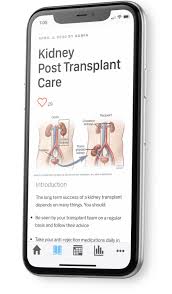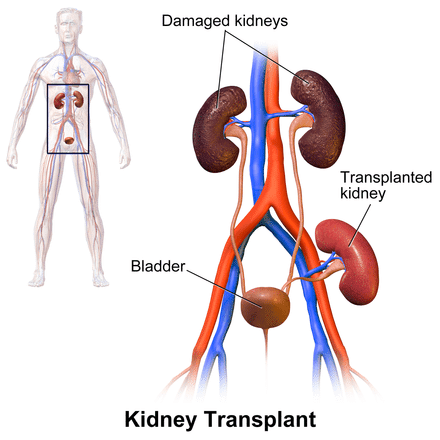Chronic Kidney Disease: More Patients Would Benefit from Lower Blood Pressure Targets
 Kathryn Foti, PhD, MPH
Postdoctoral fellow
Department of Epidemiology
Johns Hopkins Bloomberg School of Public Health
MedicalResearch.com: What is the background for this study?
Response: The Kidney Disease: Improving Global Outcomes (KDIGO) 2021 Clinical Practice Guideline for the Management of Blood Pressure (BP) in Chronic Kidney Disease (CKD) provides recommendations for the management of BP in individuals with nondialysis CKD, incorporating new evidence since the publication of its previous guideline in 2012.
The 2021 KDIGO guideline recommends a target systolic BP <120 mmHg based on standardized office BP measurement. This BP goal is largely informed by the findings of the SPRINT trial which found targeting SBP <120 mmHg compared with <140 mmHg reduced the risk of cardiovascular disease by 25% and all-cause mortality by 27%. The benefits were similar for participants with and without CKD.
In our study, we sought to examine the potential implications of the 2021 KDIGO guideline for BP lowering among US adults with CKD compared to the 2012 KDIGO guideline (target BP ≤130/80 mmHg in adults with albuminuria or ≤140/90 mmHg or under without albuminuria) and the 2017 American College of Cardiology/American Heart Association (target BP <130/80 mmHg) guideline. Additionally, we determined implications of the 2021 KDIGO guideline for angiotensin converting enzyme inhibitor (ACEi) or angiotensin II-receptor blocker (ARB) use for those with albuminuria (recommended at systolic BP ≥120 mmHg) compared to the 2012 KDIGO guideline (recommended at BP >130/80 mmHg). (more…)
Kathryn Foti, PhD, MPH
Postdoctoral fellow
Department of Epidemiology
Johns Hopkins Bloomberg School of Public Health
MedicalResearch.com: What is the background for this study?
Response: The Kidney Disease: Improving Global Outcomes (KDIGO) 2021 Clinical Practice Guideline for the Management of Blood Pressure (BP) in Chronic Kidney Disease (CKD) provides recommendations for the management of BP in individuals with nondialysis CKD, incorporating new evidence since the publication of its previous guideline in 2012.
The 2021 KDIGO guideline recommends a target systolic BP <120 mmHg based on standardized office BP measurement. This BP goal is largely informed by the findings of the SPRINT trial which found targeting SBP <120 mmHg compared with <140 mmHg reduced the risk of cardiovascular disease by 25% and all-cause mortality by 27%. The benefits were similar for participants with and without CKD.
In our study, we sought to examine the potential implications of the 2021 KDIGO guideline for BP lowering among US adults with CKD compared to the 2012 KDIGO guideline (target BP ≤130/80 mmHg in adults with albuminuria or ≤140/90 mmHg or under without albuminuria) and the 2017 American College of Cardiology/American Heart Association (target BP <130/80 mmHg) guideline. Additionally, we determined implications of the 2021 KDIGO guideline for angiotensin converting enzyme inhibitor (ACEi) or angiotensin II-receptor blocker (ARB) use for those with albuminuria (recommended at systolic BP ≥120 mmHg) compared to the 2012 KDIGO guideline (recommended at BP >130/80 mmHg). (more…)Dialysis Patients at High Risk of COVID-19 Infection, Hospitalization and Death
Hepatorenal Syndrome-Acute Kidney Injury: Predictors of Response to Terlipressin
Hepato-Renal Syndrome Type 1: Treatment with Terlipressin Reduced Need for Renal Replacement Therapy
New Equation Addresses Kidney Function Across All Age Groups
Re-evaluation of Race Multiplier in Estimating Kidney Disease
The original CKD-EPI and MDRD studies showed an association between African-American race with higher measured GFR at the same blood creatinine concentration. However, there have been concerns raised about the application of the race multiplier to all African-American patients. First, there is no clear biological explanation for the association, the identification of Black race was unclear in some of the cohorts used in these studies, and there is vast genetic and ancestral heterogeneity among those who self-identify as black. The use of the race multiplier also ignores the fact that race is a social, not biological construct.
We found that with the removal of the race multiplier, up to one in every three African-American patients would be reclassified as having a more severe stage of CKD, with one-quarter of African-American patients going from stage 3 to stage 4. We also found that with the removal of the race multiplier, 64 patients would have had an eGFR <20, the threshold for referral for kidney transplant, and none of these patients were referred, evaluated or waitlisted for transplant. This is in contrast, to those African-American patients with an eGFR <20 with the race multiplier applied, who had a higher odds of being referred, evaluated or waitlisted for transplant compared to other racial groups (Odds ratio of 2.28, compared to White cohort).
(more…)President of Transplant Recipients International Discusses Transplantation Experience in Time of COVID-19


Italian Study Finds Patients’ Preferences Are Largely Ignored in Kidney Allocation Algorithms
Safe Management of Kidney Transplant Patients During COVID-19 Pandemic
Does Lowering Uric Acid with Allopurinol Slow Progression of Chronic Kidney Disease?
Study Finds Novel Difelikefalin (Korsuva) Stops the Itch of Chronic Kidney Disease
Increased Bleeding Risk with Clarithromycin-DOAC Anticoagulant Regimen
Fewer Kidney Failure Patients Rely on Medicare for Dialysis
Pregnancy: Age, Diabetes and Ethnicity Linked to Increased Risk of Kidney Injury
Researchers Regenerate Functioning Kidney Cells from Patients With Chronic Renal Disease
Renal Transplant Complications in Patients with and without Gout
Lumasiran Study Offers Hope For Patients with Debilitating Primary Hyperoxaluria
- Lumasiran is an investigational RNA interference (RNAi) therapeutic in development for the treatment of primary hyperoxaluria type 1 (PH1). PH1 is a rare life-threatening disease in which a enzymatic deficiency in the liver results in pathologic overproduction of oxalate, often leading to recurrent kidney stones and a progressive decline in kidney function, which typically culminates in end-stage renal disease (ESRD).Patients with ESRD are at a risk of systemic oxalosis, with oxalate depositing throughout the body, including the eyes, skin, bones, and the heart. Complications associated with ESRD and/or systemic oxalosis can be fatal. For patients with ESRD treatment options are limited and include intensive dialysis as a bridge to a dual liver/kidney transplant, highlighting the unmet need for new treatment options.
Racial & Ethnic Differences in Pregnancy Rates Among Women on Dialysis
Disparities Persist Between Kidney Transplantation and Dialysis Facility Ownership
French More Likely to Transplant Kidneys from Older, Sicker Patients
Study Finds LOKELMA™ (sodium zirconium cyclosilicate) Reduces Elevated Potassium in Hemodialysis Patients
Many Dialysis Patients Do Not Think of Themselves As Having a Life Limiting Condition
Social Risk Factors May Influence Dialysis Quality Measures and Financial Penalties


FARXIGA (dapagliflozin) Reduced Kidney Function Decline in Type II Diabetes
Use of AV Grafts Drops in Dialysis Patients, But Still Room For Improvement
PCSK9 Inhibitor (evolocumab) Added to Statin Lowered Risk of Cardiovascular Events in Kidney Disease Patients
- a) evolocumab appears to be equally safe in individuals with preserved and mild to moderately impaired kidney function
- b) evolocumab appears to have preserved efficacy at preventing cardiovascular events as kidney function declines.
- c) We were unable to detect any significant impact on kidney function.
- In addition, because the baseline risk of cardiovascular events is much higher in individuals with chronic kidney disease, the absolute benefits of treatment with evolocumab appear to be magnified as kidney function declines. (more…)
Kidney Transplant: Alternative Immunosuppressant Regimens with Belatacept (NULOJIX®) May Improve Outcomes
Many ER Patients with Elevated Potassium, End up Being Admitted After Discharge


























